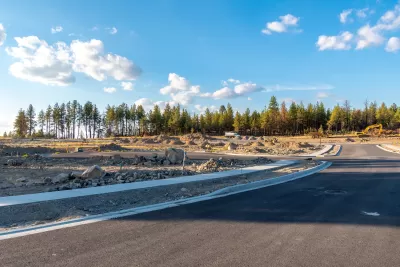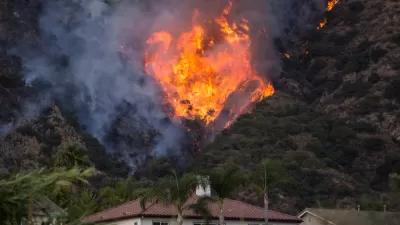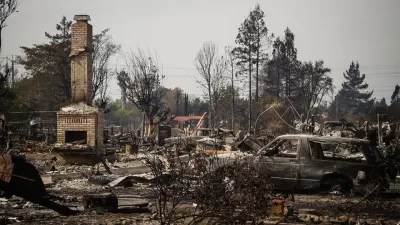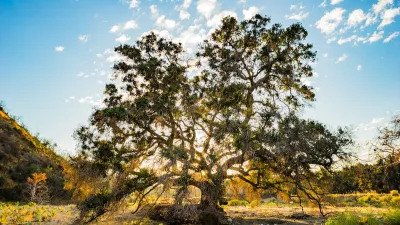Citing inadequate fire protection and public safety resources, the Spokane City Council has temporarily halted subdivision development in the wildland-urban interface of Latah Valley.

An article in NonStopLocal, the Spokane City Council passed a moratorium on the development of new subdivision housing in Latah Valley, which abuts wildland on the city’s southwestern edge. According to reporter Faith Iverson, “The Spokane City Council discussed the increased residential development specifically in the Grandview Thorpe neighborhood comparing it to the ratio of fire protection and public safety resources in the area.” The ban prohibits the city from accepting, processing, reviewing, or approving new applications for preliminary short subdivisions or preliminary subdivisions for housing in the banned zone.
This is not the first time a temporary ban has been levied on the Latah Valley neighborhood. Last year, the Inlander reported the Spokane City Council approved a six-month moratorium on development in the area in September 2022 to work on updating fees related to infrastructure costs for new developments. That ban was primarily driven by transportation infrastructure concerns. But after last summer’s wildfires burned down two homes and prompted evacuation notices in July and again in August, citizen groups began calling for a moratorium on development until the city funded the creation of a better wildfire emergency plan and a permanent fire station for the area.
Balancing risk with the need to build more housing, which often pushes development into the wildland-urban interface, will be an ongoing challenge for states and cities as the frequency and severity of wildfires grow. According to research published in the Source NM last year, close to 600,000 people in the United States were directly exposed to wildfires within 3 miles of their homes in the last two decades, 80 percent of those in western states and 70 percent in California. This growing risk has led multiple insurers to stop selling policies in high-risk states.
FULL STORY: City council discussing temporary stop on housing expansion in Latah Valley

Study: Maui’s Plan to Convert Vacation Rentals to Long-Term Housing Could Cause Nearly $1 Billion Economic Loss
The plan would reduce visitor accommodation by 25% resulting in 1,900 jobs lost.

Alabama: Trump Terminates Settlements for Black Communities Harmed By Raw Sewage
Trump deemed the landmark civil rights agreement “illegal DEI and environmental justice policy.”

Why Should We Subsidize Public Transportation?
Many public transit agencies face financial stress due to rising costs, declining fare revenue, and declining subsidies. Transit advocates must provide a strong business case for increasing public transit funding.

Paris Bike Boom Leads to Steep Drop in Air Pollution
The French city’s air quality has improved dramatically in the past 20 years, coinciding with a growth in cycling.

Why Housing Costs More to Build in California Than in Texas
Hard costs like labor and materials combined with ‘soft’ costs such as permitting make building in the San Francisco Bay Area almost three times as costly as in Texas cities.

San Diego County Sees a Rise in Urban Coyotes
San Diego County experiences a rise in urban coyotes, as sightings become prevalent throughout its urban neighbourhoods and surrounding areas.
Urban Design for Planners 1: Software Tools
This six-course series explores essential urban design concepts using open source software and equips planners with the tools they need to participate fully in the urban design process.
Planning for Universal Design
Learn the tools for implementing Universal Design in planning regulations.
Smith Gee Studio
Alamo Area Metropolitan Planning Organization
City of Santa Clarita
Institute for Housing and Urban Development Studies (IHS)
City of Grandview
Harvard GSD Executive Education
Toledo-Lucas County Plan Commissions
Salt Lake City
NYU Wagner Graduate School of Public Service





























